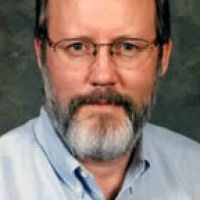Bonetti et al., 2018
Impact of climate-vegetation interactions on natural and disturbed landscape evolution: insights from the Calhoun Critical Zone Observatory
Bonetti, Sara; Ferguson, Terry; Richter, Daniel; Porporato, Amilcare (2018)
European Geosciences Union General Assembly, 4-13 April, 2018, Vienna, Austria
-
Calhoun, GRAD STUDENT
-
Calhoun, COLLABORATOR
-
Calhoun, INVESTIGATOR
-
Calhoun, INVESTIGATOR
Abstract
The presence of vegetation plays an important role in reducing soil erosion associated with overland flow, with repercussions on soil carbon and nutrient cycling. This is particularly evident in intensively managed landscapes, where natural vegetation is usually cleared with subsequent land conversion for agricultural purposes, altering the balance from slow soil creep to much more rapid soil removal by overland flow. At the Calhoun Critical Zone Observatory (CZO) in South Carolina, decades of intensive agricultural land use for cotton cultivation drastically altered soil properties and landscape geomorphology, resulting in deep gullies, severely eroded areas, and soil fertility loss. A theoretical analysis of the coupled dynamics of surface water runoff and landscape evolution is presented here to investigate the existence of critical conditions of land erosion in relation to different degrees of vegetation cover. Numerical simulations reproduce observed erosional cycles at the Calhoun CZO due first to climatic disturbances during the Quaternary and then to unsustainable land use practices and vegetation removal for cotton cultivation in the 19th century. Theoretical and numerical results are used to analyze the effect of vegetation biomass on soil carbon and nutrients at the Calhoun CZO, within a framework applicable to other intensively managed landscapes.
Citation
Bonetti, Sara; Ferguson, Terry; Richter, Daniel; Porporato, Amilcare (2018): Impact of climate-vegetation interactions on natural and disturbed landscape evolution: insights from the Calhoun Critical Zone Observatory. European Geosciences Union General Assembly, 4-13 April, 2018, Vienna, Austria.
 This Paper/Book acknowledges NSF CZO grant support.
This Paper/Book acknowledges NSF CZO grant support.
Explore Further




